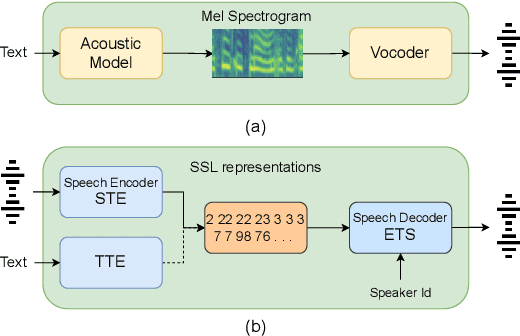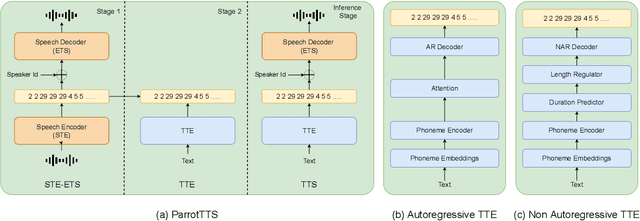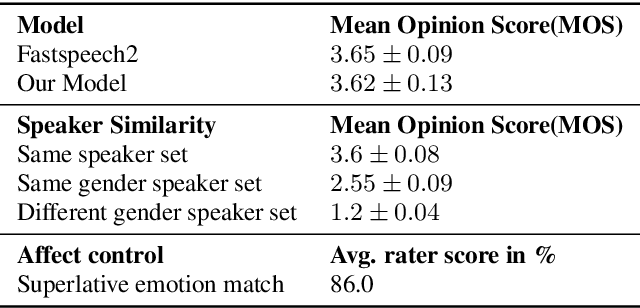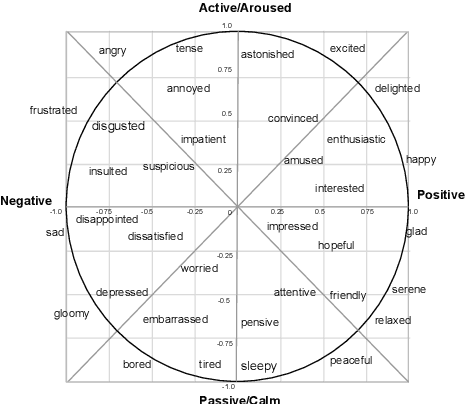Saiteja Kosgi
MParrotTTS: Multilingual Multi-speaker Text to Speech Synthesis in Low Resource Setting
May 19, 2023



Abstract:We present MParrotTTS, a unified multilingual, multi-speaker text-to-speech (TTS) synthesis model that can produce high-quality speech. Benefiting from a modularized training paradigm exploiting self-supervised speech representations, MParrotTTS adapts to a new language with minimal supervised data and generalizes to languages not seen while training the self-supervised backbone. Moreover, without training on any bilingual or parallel examples, MParrotTTS can transfer voices across languages while preserving the speaker-specific characteristics, e.g., synthesizing fluent Hindi speech using a French speaker's voice and accent. We present extensive results on six languages in terms of speech naturalness and speaker similarity in parallel and cross-lingual synthesis. The proposed model outperforms the state-of-the-art multilingual TTS models and baselines, using only a small fraction of supervised training data. Speech samples from our model can be found at https://paper2438.github.io/tts/
ParrotTTS: Text-to-Speech synthesis by exploiting self-supervised representations
Mar 01, 2023



Abstract:Text-to-speech (TTS) systems are modelled as mel-synthesizers followed by speech-vocoders since the era of statistical TTS that is carried forward into neural designs. We propose an alternative approach to TTS modelling referred to as ParrotTTS borrowing from self-supervised learning (SSL) methods. ParrotTTS takes a two-step approach by initially training a speech-to-speech model on unlabelled data that is abundantly available, followed by a text-to-embedding model that leverages speech with aligned transcriptions to extend it to TTS. ParrotTTS achieves competitive mean opinion scores on naturalness compared to traditional TTS models but significantly improves over the latter's data efficiency of transcribed pairs and speaker adaptation without transcriptions. This further paves the path to training TTS models on generically trained SSL speech models.
Emotional Prosody Control for Speech Generation
Nov 07, 2021


Abstract:Machine-generated speech is characterized by its limited or unnatural emotional variation. Current text to speech systems generates speech with either a flat emotion, emotion selected from a predefined set, average variation learned from prosody sequences in training data or transferred from a source style. We propose a text to speech(TTS) system, where a user can choose the emotion of generated speech from a continuous and meaningful emotion space (Arousal-Valence space). The proposed TTS system can generate speech from the text in any speaker's style, with fine control of emotion. We show that the system works on emotion unseen during training and can scale to previously unseen speakers given his/her speech sample. Our work expands the horizon of the state-of-the-art FastSpeech2 backbone to a multi-speaker setting and gives it much-coveted continuous (and interpretable) affective control, without any observable degradation in the quality of the synthesized speech.
 Add to Chrome
Add to Chrome Add to Firefox
Add to Firefox Add to Edge
Add to Edge